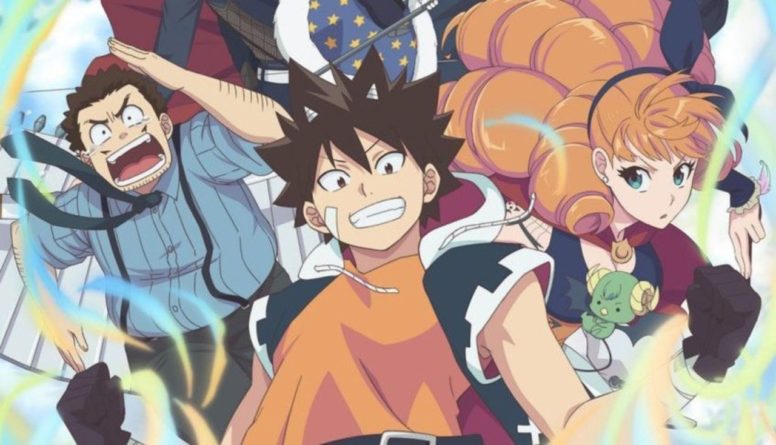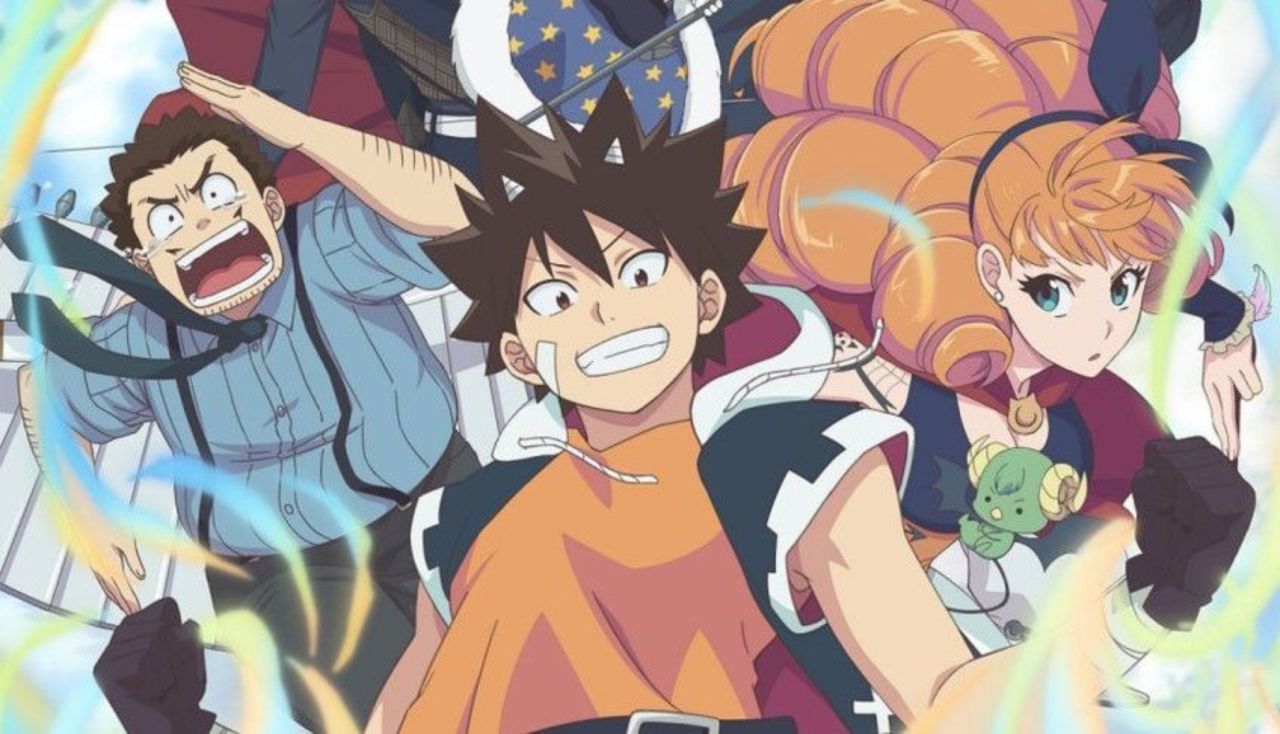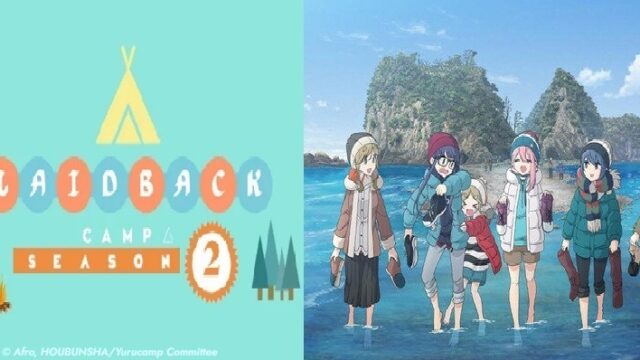Beasts and Witch Hunts: A RWBY/Radiant Editorial
Despite constant urges to coexist with our fellow man, humanity hasn’t exactly been great at getting along with itself. One of the biggest things we often use to create conflict with each other is race or ethnicity, which is so prevalent that our stories are overflowing with lessons of looking past these differences in order to find common ground, including what we might do if we ever met aliens or had to deal with some humans gaining special abilities. X-Men used this for mutants, Avatar for the Na’vi, District 9 with the Prawns, and so on. Two examples are for shows airing right now: RWBY, with its animalist “Faunus” race, and Radiant, with it’s magic-based “Sorcerers”. Both of these take the issue of fear and persecution in interesting directions, sometimes by doing nothing at all, so now seemed like a good time to compare the two and see what it all says at the end of the day.

The Pride (Faunus & Sorcerers):
RWBY introduces us to the plight of the Faunus people in its first episode, establishing them as persecuted people with animal traits who are desperate for equal treatment and rights, even having apparently fought a war over it. Blake, one of the main four protagonists, acts as the representative of Faunus related plot lines, especially when it pertains to the revolutionary group White Fang, which she was previously a member of. Faunus is typically identified by having some sort of animal trait on their body, whether it’s claws, wings, scales, extra ears, or something else. We haven’t gotten much into their genealogical origins yet (assuming there’s much to tell), but they seem to be a species (or sub-species) that still has a lot unexplored.
As for Radiant, the Sorcerers have a bit more of a detailed background to them. As the world of this series is plagued by monsters known as Nemesis, Sorcerers actually originate from regular humans surviving attacks from their destruction. This causes them to gain their own unique physical or psychological trait known as a “curse”, sometimes granting them odd abilities and other times just making them look weird. But they also acquire the use of Fantasia, which they can use to directly combat Nemesis attacks, making them a valued resource in fighting them off. Well, valued to an extent, as they are used solely to fight off Nemesis attacks but seen as monsters themselves the whole time, even burned at the stake in some cases.

The Homeland (Menagerie & Artemis):
Menagerie is a remote tropical island and once started out as the attempted cage human authorities planned to force the Faunus into, triggering what would be known as the Faunus Rights Revolution, which would eventually win Faunus their rights to live within the four proper kingdoms of Remnant. While not a proper kingdom in its own right, it still serves as a capital of sorts for the Faunus people, with it having the most concentrated population of them seen in Remnant so far. Still, not much is known about their culture or government beyond them having a Chieftain and having many open marketplaces, so the actual goings-on in Menagerie are unclear
Meanwhile, Radiant has the floating city of Artemis, which serves as a safe haven for persecuted Sorcerers. Places for Sorcerers to live comfortably are apparently pretty rare in the show’s world, making Artemis a favored destination for those trying to escape the cruel life of being hunted by those who fear and hate them. However, it doesn’t come cheap, as Master Lord Majesty sends citizens into immediate inescapable debt just to keep them there AND keep the lights on. But with that comes a very centralized community of both knowledge and initiative to research and protect the Sorcerer race.

The Enemy (Schnee Dust Company-The Inquisition)
The Faunus, at the time of this writing, do not seem to have an organization diametrically opposed to them specifically. But the one that has done the most concentrated harm to them so far is likely the Schnee Dust Company, which has used Faunus as slave labor, branded them for disobedience, and been the biggest target of the White Fang revolutionary group. Though even with that much unintentional impact on the species, they’re still a major source of inhuman treatment towards Faunus.
The Sorcerers, meanwhile, have The Inquisition, a group formed solely to fight and control the Sorcerer threat. Legends even say they were made to overthrow Sorcerers that abused their power. But even with good intentions in their origins, they’ve become corrupt over time, even being filled with those who fueled only by the fear that they do not understand. Because of this, their reputation has waned over time, with their influence losing its grip. Still, they prove to be a formidable threat to existing sorcerers, which likely means their conflict is far from over.

The Backlash (White Fang-Bravery Quartet)
In response to the dehumanization brought upon them by various groups, the Faunus created the White Fang, which was intended to advocate equality between them and humanity. But much like the Inquisition, they’ve also lost their way as things went on, switching leaders who grew less peaceful and moderate and eventually graduating to full-blown terrorism. After another recent changing of the guard, they look to be back to focusing on defending from discrimination, hopefully, done with the in-fighting for now.
Radiant’s possible equivalent is a far smaller roster, but they still hold an identifiable message. The Bravery Quartet acts as a response to the cruel and contradictory nature humans give them. They pretend to come to an area threatened by a Nemesis but then loot the town after everyone’s evacuated, using the fact that they would be used and abused anyway as an excuse for their actions. They’ve since changed their ways as well, but their original motives highlight how such a system can lead to those making use of fear only to stir the pot and make a profit.
Conclusion:
The lesson of learning to look past differences and accept people for what’s on the inside is one that should never leave our minds or our storytelling. While the execution may differ in quality from time to time, it is nonetheless in the important message we must all take to heart. We may not know of people with animal-like characteristics or odd curses, but we as a species have found lesser reasons to hate and fear each other, which hopefully highlights how pointless it all is in the end. And if we’re lucky, we might see some considerable progress and keep each of us alive a bit longer.



























Hi Ashley, thank you so much for reading and we love the feedback. Note that on that day we had 14th posts go up and only ten posts show on the front page, so it's possible the preview had already been archived by the time you got to it. One recommendation would be to add our RSS feed to your favorite news aggregator service like Feedly, this way you get all of the latest posts!